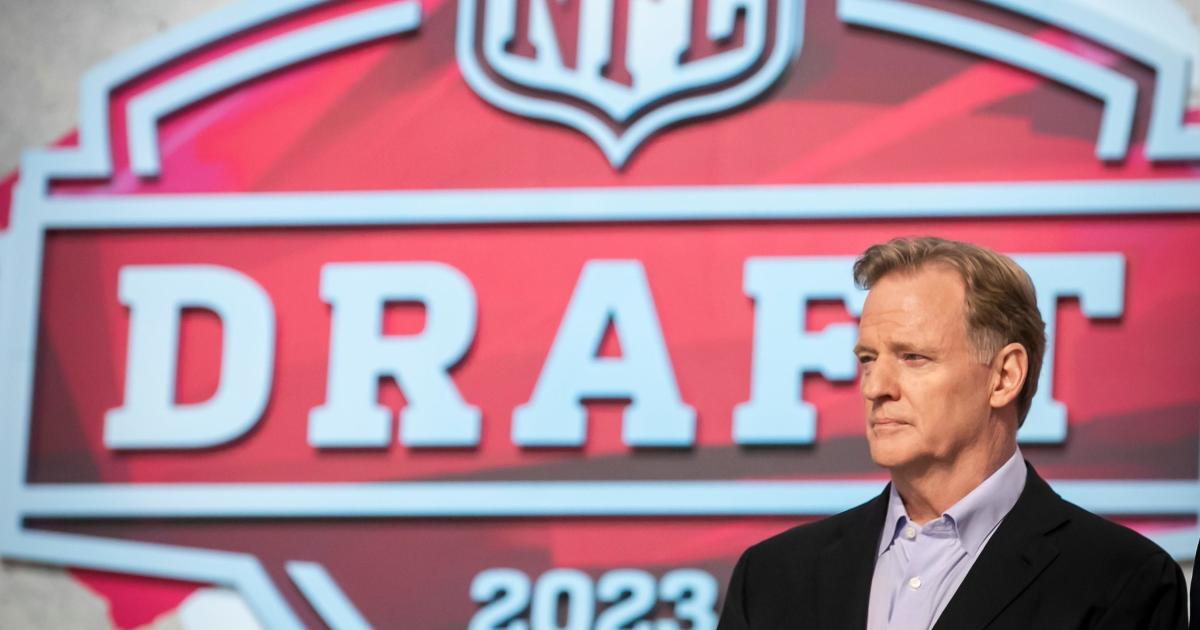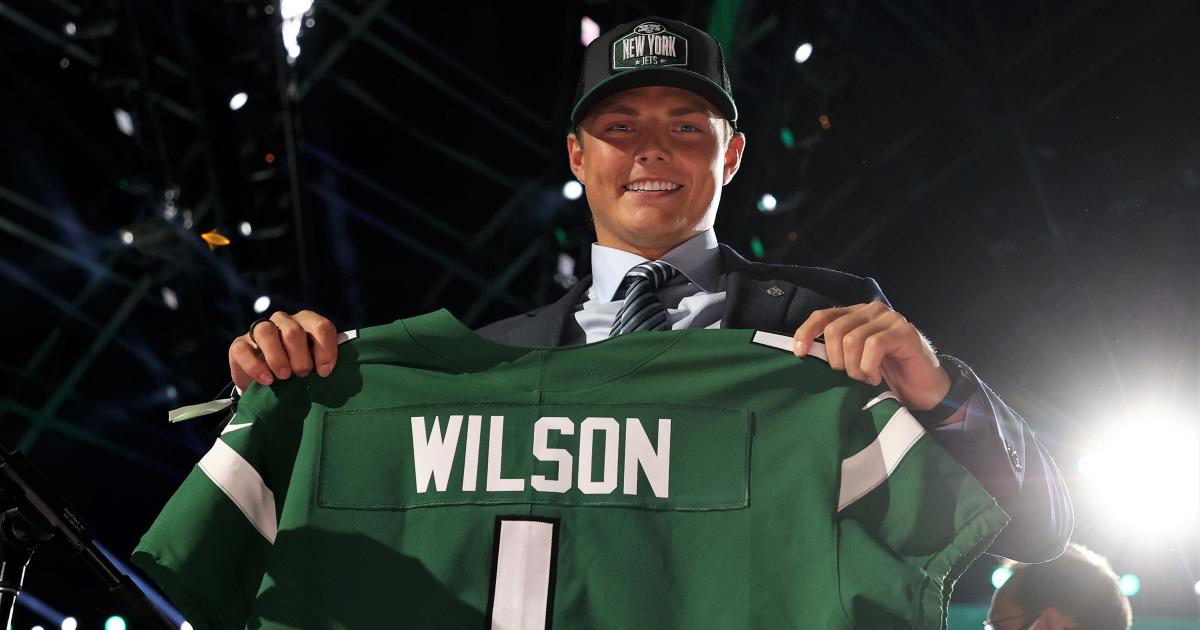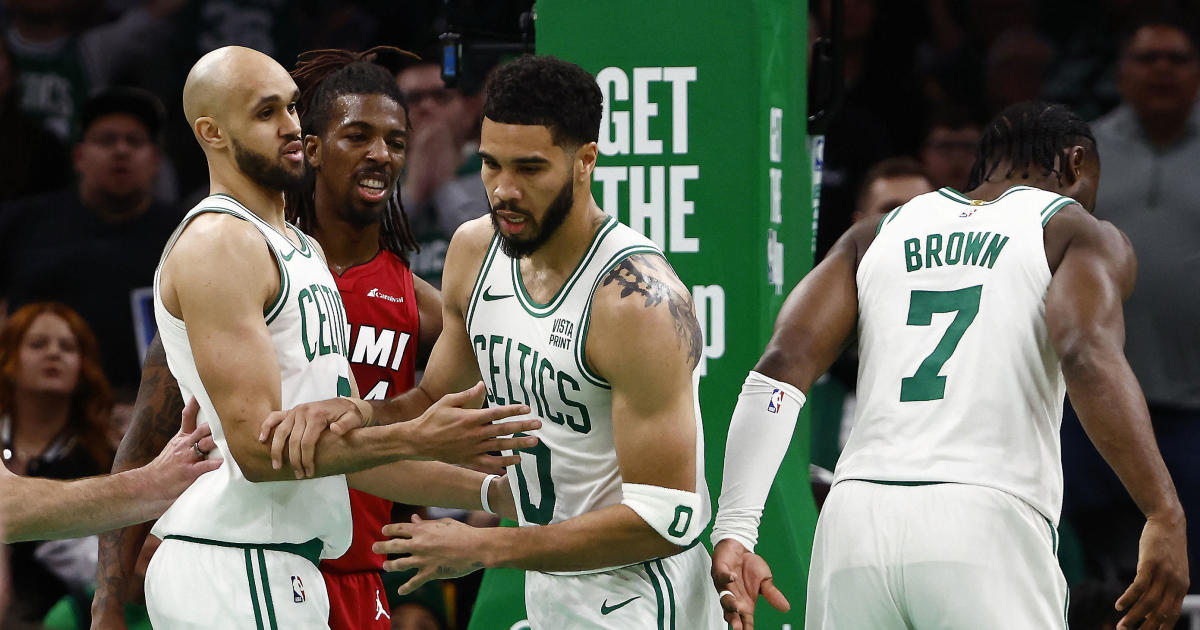Baseball Hall Of Fame Voting: An Interview With Tony Massarotti On The Faults Of The System
By Michael Hurley, CBS Boston
BOSTON (CBS) -- It's Baseball Hall of Fame season, and that means one thing is a guarantee: There will be debates. So. Many. Debates.
Is Player X first-ballot worthy? Do we vote for Player Y in his final year of eligibility? Do we go for all the steroid guys, some of the steroid guys, or none of the steroid guys? And what about the gray area guys?
It's a time of year that for many sports fans can be difficult to get through, if only because the Baseball Hall of Fame voters and BBWAA members have a tendency to take themselves and their votes a wee bit too seriously.
But rather than espouse my own opinions on the matter, I decided it would be better to talk to an actual voter to get some insight onto what goes on with the process, what's wrong with the process, and a smattering of other Hall of Fame-related topics. Fortunately for me, Tony Massarotti is a Hall of Fame voter, and he's not shy about voicing opinions.
As background, Tony started covering baseball in 1994 and did so full time from 1995-2009. He began voting for the Hall of Fame after the 2003 season, when he helped elect Paul Molitor and Dennis Eckersley to Cooperstown. Below is a Q&A with Tony, edited only for brevity, as the two involved parties do have a tendency to ramble.
Hall of Fame voting is something that unquestionably should be taken seriously. If it's not treated seriously, then it all falls apart. But do you think that the duty of voting is taken a little too seriously?
Mazz: I think, yes. I think there's a happy medium in there, right? You want to take the assignment seriously; you also don't want to take it so seriously that you're unreasonable. So there is a balance in there for sure, and it's gotten a lot harder in recent years, because of the whole steroids thing. So balancing the responsibility with sort of what you believe -- because you are talking about the careers of players, and people. So it means a lot to them, and if it means a lot to them, then you have to treat it seriously. Right?
So, you know, that's always a little bit of a challenge because there are some guys that you just don't believe in what they did, and other guys you say, 'I don't care if they did steroids.' And I know that there are guidelines that we're all given to vote, there are parameters on the ballot. But I try to treat it as, evaluate the guy as a ball player. I just think when you start -- and not to get down this road -- but when you start talking about character and things like that, it gets very gray very quickly. So what are we using to determine a standard for character? In-game character, out-of-game character? If a guy beats his wife, that's OK, but if he scuffs a baseball, it's not? That's not specified. So i try to keep it relatively simple and just assess these guys based on their abilities as ball players, in my opinion.
If that makes sense.
Steroids have complicated the process quite a bit and makes it a little bit messier now. But, and you would know better than I, I feel like it's always been a bit of a convoluted process, just based on the fact that no one's been unanimous and things like that.
Mazz: Agreed. The unanimous thing is coming up now because of Ken Griffey Jr. Anyone who doesn't think Ken Griffey was a Hall of Famer, to me, is a complete idiot.
Well, even last year with Pedro Martinez, someone said, essentially, 'He's a Hall of Famer, but not a first-ballot Hall of Famer.'
Mazz: Right, so I don't subscribe to that theory.
So ... what is it that breeds that insufferability of, 'I am the gatekeeper of first-ballot Hall of Famers!'?
Mazz: I don't know. My answer is I don't know. I would argue that it has to do more with the way people used to vote than the way they vote now. As sanctimonious as the baseball writers are, it's not nearly as bad as it used to be. And I think it used to be a lot worse. I think there were guys from another generation, guys who took it upon themselves to say, 'Well, nobody's ever been unanimous, so we're going to make sure that nobody's ever unanimous.' Which I think is asinine. I think it's completely and totally asinine.
So, as far as I know, most of my contemporaries have never voted that way. I don't know any guy that I've ever talked to that has said, 'I sent in a blank ballot just because I want to make sure no one gets 100 percent.' I sort of feel like it's from a bygone era.
I think it was Rick Gosselin last year. He might have voted for Randy Johnson, but on Pedro, he said, 'A select few are deserving of that first ballot honor.' And he only voted for nine people, leaving one vote unused.
Mazz: Yeah, that's crazy, and in the case of Pedro, I'm not surprised that Pedro's number was so low (91.1 percent). His career wasn't long enough.
I just remember two people in particular made a grandstanding spectacle of their vote by not voting for Pedro, and it was all about garnering attention, and I just feel like that's become a strategy of some Hall of Fame voters. It's like a way to make a headline. Would you agree with that for some people?
Mazz: Yeah, I'd be crazy to say no. Again, I can't get in the head of someone else, but does it feel that way? Sure. Yes.
Pedro's a good example, because I think most people looked at him and said, 'Well he's gonna get in, so if I leave him off my ballot, it's not going to hurt him, and I can get a good column out of it.'
Mike Berardino last year said he left Pedro and Johnson off his ballot because Alan Trammell needed him more. That's not part of the voting guidelines.
Mazz: No, you're supposed to vote for the best players. And that's another thing to, is the one you're talking about is, 'Well, I wanted to vote for 11 guys, and I knew Randy Johnson would get in so I left him off my ballot.' Well that's stupid. No. You vote for 10, and then if your guy didn't get in, you vote for him the next time around. That's how it's supposed to work. So I don't like that idea earlier.
I can tell you that early on, I had more names on the ballot than I do now. Now, I vote for a relatively small number. I hear people say that they want to vote for more than 10, and I think it's crazy. Because if you want to vote for more than 10, then the number is too high.
Well that's my next question. I hear people lamenting that they only have 10 votes. Ten seems like more than enough on a given year to vote for a Hall of Fame. Like, what is a Hall of Fame if you want more than 10 votes every year?
Mazz: I think a lot of guys have gotten too close to it. And so their judgment is affected. Like I'll give you a good one. Craig Biggio's an obvious one.
Craig Biggio was accommodating, he was a good guy, he played hard, and so he got 3,000 hits and everyone said Craig Biggio's a Hall of Famer. I'm sorry, he's not even close. I mean, you know, he's close, I shouldn't say that. But he's not what I would use as a metric.
And I think Trevor Hoffman's another good one. Trevor Hoffman's got 600 career saves. Only Mariano Rivera has more. Sorry, not a Hall of Famer in my mind. Not good enough. Every big situation I ever remember Trevor Hoffman being in, he blew it. And so I would never put him in the same breath as Mariano Rivera. I just wouldn't do it.
Generally speaking, I look at the ballot, I decide who I think is in, and I generally stick with it. Rich Gossage is the only guy that I didn't vote for the first time but did vote for the second time. And it was not out of some, you know, effort to say he shouldn't get in on the first ballot. I started thinking about it again, and in that era (I didn't give initially give enough consideration to this) he didn't just come in and pitch the ninth. Gossage would come in sometimes and pitch two, three innings, and he was absolutely dominating. And he was intimidating. And there was a lot there. So I was a yes on him, ultimately.
And I can say that I think every guy I've ever voted for has gotten in, except for Edgar Martinez. I'd just say as an aside on Edgar, that one is a campaign. I admit it.
Because someone's gotta be the first DH?
Mazz: Right. And I think that there's a bias against the DH, which I think is a joke. So he's the best guy that's ever played the position that's been eligible for the Hall of Fame. So that's why I vote for him.
Right, it is wrong that someone who played [expletive adverb] at first base gets into the Hall of Fame for being a [expletive adjective] first baseman.
Mazz: Right, is Frank Thomas in because of his defense? No.
OK, changing topics. Are there too many voters? And is the lifetime vote a good thing?
Mazz: Well the lifetime vote is going away. There's going to be a process by which voters are reviewed I think after every season, and if you haven't covered within some specific period, then you're out. So I'm going to lose mine. I'm going to lose my vote probably within the next five years. And you know what? I don't have a problem with that. Because I shouldn't be voting on Mike Trout. I don't watch him enough. I shouldn't be voting on ... who's a good example on this Red Sox team now?
XANDER BOGAERTS!
Mazz: Right. Xander Bogaerts or Mookie Betts. I shouldn't be voting on those guys. I wasn't around it enough. So I wasn't able to see some of the intangibles and things like that. So I don't have a problem giving it up when my time comes. I never liked the lifetime thing. I mean, think of that. You could be like 80 years old, have not covered a game in like 45 years, and you have a Hall of Fame vote? That's the stupidest thing ever. So I'm glad they're changing that. That's a good thing.
On the question of if there are too many votes, I would say yes. [There are more than 500 voters.] But I think this end of the lifetime vote is going to solve part of the problem. You are going to get more people voting who are around the game more intimately.
I'm also starting to wonder whether being around and getting to know these guys is a good thing or a bad thing. Because I think people's votes are compromised by their relationships. 'Well, you know, I liked this guy, so I'm going to vote him.' I try to be consistent with this. The hard ones are, like, John Smoltz. He got in, he got over 80 percent. I don't think Smoltz is a Hall of Famer. I thought he was a damn good pitcher, but no. Not quite long enough, and he wasn't as dominating as someone like Pedro was. So I'm a no on him, I'm a no on Curt Schilling, I'm a no on Jack Morris, I'm a no on Mike Mussina, Andy Pettitte.
Jim Rice?
Mazz: Rice, I put in.
You voted for him the whole time?
Mazz: From the time I started voting, Rice was on my ballot.
And that's someone you obviously watched more intimately than perhaps some other voters?
Mazz: Yes, but that's also a good example of a guy I was voting on that I never really covered.
All right, well I'll let you put a bow on this conversation if there's anything that bugs you or you think should be fixed about the voting process.
Mazz: Well the one thing you didn't ask that everyone asks about is the steroid guys. How do you reconcile the steroid guys? I just try to look at them purely as their skill as a ball player. Right? Mark McGwire was a slugger, that's it. He was a softball player. Barry Bonds ran well, played good defense (he had a bad arm though), good plate discipline, speed, average, power, good game sense. And even Roger Clemens. Clemens wasn't a guy who whipped the ball through a wall. He wasn't Nolan Ryan. People that compare Clemens to Nolan Ryan are wrong. Clemens was way better than Nolan Ryan. Ryan couldn't throw strikes for a good chunk of his career. Roger never had a problem with walks. Ever.
If Roger's career ended in '96 ... ?
Mazz: In. In. But, see, the counterargument to you putting a date on it is, 'How do we know he wasn't using in '91?' I'm just telling you that looking at him, the guy knew how to pitch. And he had good stuff.
And Bonds knew how to play baseball.
Mazz: Correct. And I would say the same about A-Rod, Manny Ramirez -- Manny was a dope, but boy could he hit. Manny and Edgar, to me, are similar in some ways, in terms of their skill as hitters. But Manny did it longer and had more power.
Griffey's automatic. I look at a guy like him and say it's not even worth discussing.
OK, so here's the last question: Who is going to get in this year that's going to make you upset like Biggio did last year?
Mazz: Well, I don't lose my mind when anybody gets in. I just sort of believe what I believe in. I don't think Mike Piazza should be in, and I think he's going to get in. I don't think Jeff Bagwell should get in; I think he's gonna get in. I think these guys were products of the era, if that makes sense, whereas I think you could take Clemens and Bonds and drop them into any era and they'd have been great. And those guys [Piazza and Bagwell], I'm not so sure about. And if I'm not sure, they're out.
I'm just not into putting "very good" in. I'm not into that. I'm into putting in the best of the best. It simplifies the discussion, and only the true greats get in if you do it that way. And Clemens and Bonds to me were probably the best pitcher and hitter of their generation. So if the other people deem Piazza and Bagwell to be in, then who am I to say no? But they didn't get my vote.
For this year's vote, Massarotti voted for Ken Griffey Jr., Barry Bonds, Roger Clemens, and Edgar Martinez.
You can email Michael Hurley or find him on Twitter @michaelFhurley.



